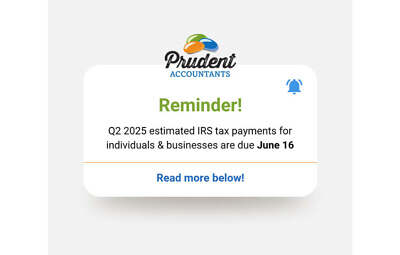Can You Deduct Your Vehicle If You Use It for Business? Here’s What You Need to Know

If you use a vehicle for business purposes, you might be wondering if it’s possible to deduct those expenses on your taxes. The good news? Yes, you can! The IRS offers a standard mileage rate that translates business travel into a deductible amount, providing small business owners with an opportunity to save.
1. Understanding the IRS Mileage Rate
Each year, the IRS sets a standard mileage rate that allows taxpayers to deduct a specific amount per mile driven for business purposes. For 2024, the mileage rate is set at 67 cents per mile. This rate helps streamline the process of calculating deductions, saving you from having to keep track of actual expenses such as gas, maintenance, and insurance related to business use.
2. How Does It Work?
The calculation for your deduction is straightforward: multiply the total business miles driven by the current IRS mileage rate. For instance, if you drive 1,000 miles for business during the tax year, you can claim a deduction of:
1,000 miles x $0.67/mile = $670
This amount can then be used to reduce your taxable income, ultimately decreasing your overall tax liability.
3. When Can You Claim This Deduction?
To qualify for the standard mileage deduction, you must meet certain criteria:
- The vehicle must be used for legitimate business purposes.
- You need to maintain accurate records of your business trips, including dates, mileage, and the reason for travel.
- The vehicle should not be used primarily for personal activities. If it serves both personal and business uses, only the portion used for business can be deducted.
4. Record-Keeping Tips for Business Mileage
Accurate record-keeping is essential for supporting your deduction claim. Consider the following best practices:
- Keep a logbook or use a mileage tracking app to record each business trip.
- Note the start and end odometer readings, along with the purpose of the trip.
- Retain any related documentation, such as receipts for tolls or parking, which may also be deductible.
5. Alternative Option: Actual Expenses
While the standard mileage rate is often the simpler choice, you can also choose to deduct the actual expenses incurred by your vehicle for business use. This option involves tracking and itemizing costs such as fuel, repairs, insurance, and depreciation. However, for many small business owners, the mileage rate provides a more convenient and efficient way to claim deductions.
6. Maximizing Your Deduction
To ensure you’re maximizing your vehicle deductions:
- Review your records periodically to confirm accuracy.
- Work with an accountant to evaluate whether using the standard mileage rate or actual expense deduction is more advantageous for your situation.
Final Thoughts
Taking advantage of the IRS mileage deduction can offer meaningful tax savings, especially for small business owners who rely on vehicles for client meetings, site visits, deliveries, or other business activities. By maintaining proper documentation and choosing the right deduction method, you can optimize your tax return and keep more of your earnings.








